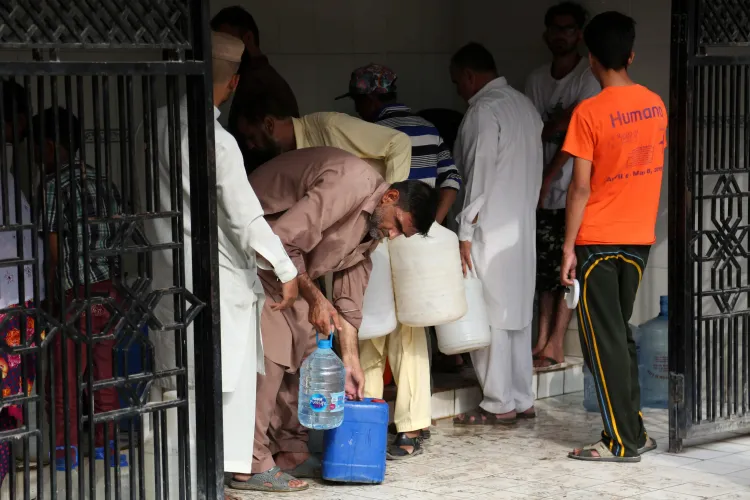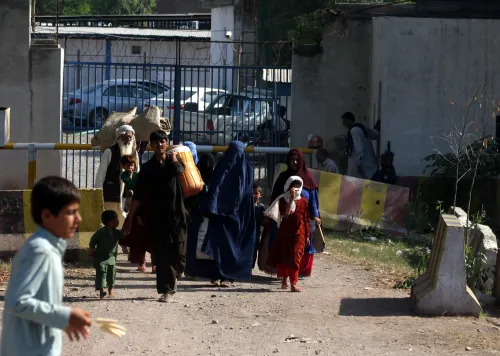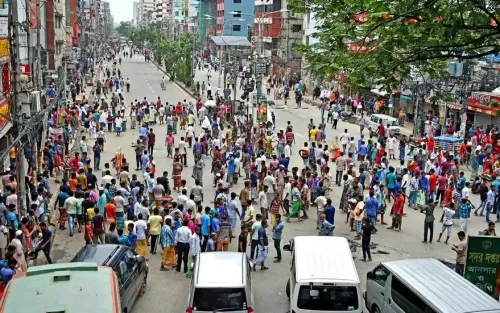Why Are Residents of Karachi Protesting Against Water Shortages?

Synopsis
Key Takeaways
- Karachi residents are facing significant water shortages.
- Protests highlight the frustrations over unreliable water supply.
- Power outages disrupt major pumping operations.
- Local authorities are urged to improve electricity supply.
- Community engagement is crucial for addressing resource management issues.
Islamabad, Nov 24 (NationPress) Residents from the northern region of Karachi, Pakistan, took to the streets at the Nagan Chowrangi pumping station to voice their anger over the ongoing water crisis, as reported by local news outlets on Monday.
The protest, which occurred on Sunday, saw a significant turnout of women who engaged in intense discussions with the Karachi Water and Sewerage Corporation (KWSC) staff, according to the Pakistani daily, The Express Tribune. Frustration among the demonstrators escalated, leading some to allegedly attempt to physically confront the workers.
Protesters expressed their disappointment over KWSC's inability to restore water supply to their residences for over a month, despite numerous assurances. Many women highlighted that the cost of purchasing water tankers has become burdensome and unmanageable for families already grappling with financial difficulties.
During the demonstration, attendees chanted slogans such as “Pani do, pani do” (give us water) and demanded an immediate resumption of services. The police arrived on-site following reports of unrest and engaged in discussions with the crowd.
Karachi is currently experiencing a critical water shortage this November, exacerbated by ongoing electricity outages that have disrupted key pumping stations, as stated by a KWSC spokesperson on Saturday.
The spokesperson revealed that the city has faced a deficit of 884 million gallons of water in the first 23 days of November due to these power outages, as reported by The News International.
In a follow-up statement issued on Sunday, the spokesperson reiterated that the ongoing interruptions from K-Electric have hindered operations at numerous pumping stations.
KWSC officials acknowledged that these repeated power outages have caused significant delays in pumping operations, thereby affecting water distribution throughout Karachi. They urged K-Electric to provide reliable electricity to major pumping stations to prevent future disruptions.
The spokesperson assured that KWSC is in close collaboration with K-Electric to minimize service interruptions. He further reported that water supply in Karachi has returned to normal following the restoration of power, with additional improvements underway.









